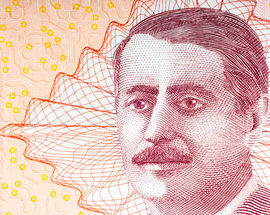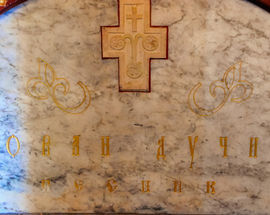Trebinje's Favourite Son: The Life of Jovan Dučić
more than a year agoDučić was born in the city in February 1871, when Trebinje was still within the borders of the Ottoman Empire. He spent his early years in the town before moving to Mostar for high school, an educational journey that then moved him onto teacher training in Sombor. It was in Mostar that his literary bones began to grow, as he befriended equally-excellent wordsmiths Aleksa Šantić and Svetozar Ćorović, establishing a literary magazine in the process. He was writing, and he was encouraging others to write.
But his eyes began to open wide once he left his homeland. It wasn’t entirely his choice, his intense Serb patriotism got him in trouble more often than not, and he was eventually sent to Geneva to study law. It was here that he encountered the wider world of literature and confirmed his assumptions, that there was more to the creative world than the restrictions of tradition and conservatism. But Dučić didn’t let the Western influence drown his Serbian heart, far from it; Dučić managed to bring the two worlds together to create something revolutionary.
It was Jovan Dučić who Westernised Serbian literature, dragging it out of its obsession with the past and adding splashes of colour in the process. He viewed Europe as a cultural idea and wasn’t afraid to embrace that, cherry-picking the finer parts of culture in the cities he lived in. He was working as a diplomat at this point and spent many years in some of Europe’s most famous cities, his writings from which form one of the region’s great travelogues.
Poetry gained Dučić the most attention, but his contribution to the art of travel writing must not be overlooked. Dučić was adamant that a good travel writer cannot just be a literary tourist, but instead has to be an artist completely focused on uncovering the essential quality of the country he or she is in. The writer must bring together the worlds of knowledge and sensibility, of emotion and intellect, of romance and logic. Anyone looking to write about their travels should dip into the travel writing of Dučić, pronto.
His last journey came at the beginning of the 1940s. He fled to the United States when the Nazis overran Yugoslavia, and lived out his final years in Indiana. He never forgot Trebinje though, and wrote about his dream for a beautiful church to be built above the city, a church in which he would eventually be buried. This came to pass with the construction of the glorious Hercegovačka Gračanica, and Dučić got his dying wish when his remains were moved here in 2000. Trebinje’s favourite son had finally come home.








Comments